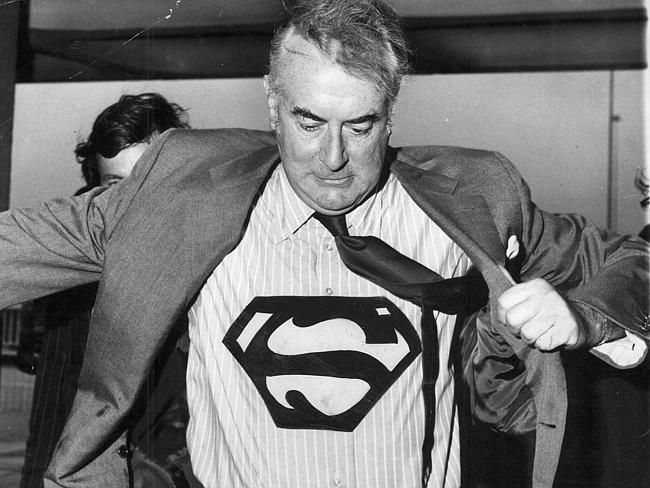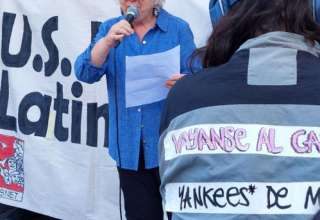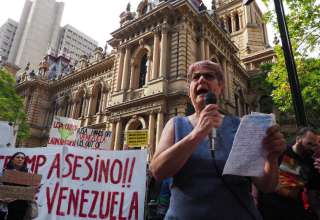by Humphrey McQueen
 This article, originally published in 1999, is first of three articles about the “Whitlam Era” that the author has given permission to republish.
This article, originally published in 1999, is first of three articles about the “Whitlam Era” that the author has given permission to republish.
‘If that other lot win, I’m not going back’, one of my fellow Australian travelers decided as we perched on top of the Pyramid of the Moon, looking down the Avenue of the Dead, outside Mexico City on 22 May 1974.
That other lot were the Liberal and Country Parties. What my friend feared was that, in a poll held four days earlier, the Coalition had defeated the first Labor government in twenty-three years, though the outcome would remain unclear for the worst part of that week.
The ALP was returned, but with a slight drop in its support and with a majority in the House of five, down from nine. Among the casualties was Immigration Minister Al Grassby who had been defeated by issues that festered until One Nation.
Control of the Senate eluded both sides, which was fair enough since a scheme to deliver a majority to Labor had been the trigger for a double dissolution instead of only the half Senate poll that was due. Queensland DLP Senator Vince Gair was unhappy that his party had removed him as leader. Gough Whitlam took pity on this Labor rat and appointed him Ambassador to Eire. Gair’s resignation meant that Queensland would have to elect six Senators, and not five, making it easier for Labor to gain an extra seat there.
Or so it seemed until that ‘Bible-bashing bastard’ Bjelke-Petersen issued the writs for the half-Senate election before the spherical Senator Gair could roll himself out of a Coalition beer-and-prawn night along the corridor to the Senate President’s suite to tender his resignation. Labor lost both credibility and the chance to pick up that extra place. The Coalition seized on ‘bribery and corruption’ to block supply. Whitlam crashed through by securing a double dissolution. Gair’s party lost all its Senate places and, after twenty years, disappeared as a political force.
The only person who did not accept that he had lost anything was opposition leader Bill Snedden who declared ‘we were not defeated’, prompting the wits to remark that he just come second. No mockers appeared on the Labor side where May 18 was another famous victory, not as memorable as 2 December 1972 yet confirmation that the Whitlam government possessed ‘a certain grandeur’.
Or so it also seemed. Before another fifteen months had passed, more calamities than enough had befallen the party, the government and the people to prompt commentators to wonder whether Labor might have done better to have run second.
‘What if?’ is not idle when speculation illuminates the significance of what did happen. Federal politics has its crop of occasions about which to propose ‘what if?’. What if the ALP candidate for Moreton in 1961 had been called Donnell instead of O’Donnell and so had garnered the donkey votes to topple Menzies? How would the Ming Dynasty appear today? And would prime minister Calwell have sent regulars into Vietnam?
The closest parallel to May 1974 was the landslide to Labor in the 1929 snap poll. What if the non-Labor government had run its full term to 1931? The Tories would have carried the opprobrium from the Great Depression, bringing Labor to office in 1931 as the cure, not scourging it in the wilderness as a scapegoat.
When we ask ‘what if Whitlam had lost in ’74?’, we know for certain that several things would not have happened.
At the level of personalities, we can be pretty sure that Snedden would not have appointed John Kerr Governor-General, and positive that Lionel Murphy would not have gone onto the High Court. Jim Cairns might not have employed Juni Morosi and R. J. Hawke would have sought another route to the Lodge. And, of course, Ambassador Gair would have had his credentials withdrawn and thus not been able to make so many impressions on the bottoms of colleens, as complained of in a confidential report to Foreign Affairs.
Another clear casualty of a Coalition victory would have been passage at the Joint Sitting of both Houses in July of the Bills that Whitlam had used to secure a double dissolution. Medibank would have been still-born.
Above all, Labor would not have presided over the end of full employment. The Loans Affair would not have clear-felled the cabinet before culminating in the ‘reprehensible circumstances’ that Malcolm Fraser went looking for to justify blocking Supply again in October 1975.
Stretching the scenario further, it is reasonable to assume that the electorate would then have blamed the Coalition government for the death of the lucky country during 1975 and swung back to the ALP at elections late in 1976 or early 1977.
That interregnum should have let Whitlam hone the managerial skills of his shadow ministers, in particular, cutting the cabinet back from twenty-seven to a dozen. Caucus would meanwhile have absorbed the idea of a fiscal crisis of the state, learned to tailor reform to an era of economic restraint and no longer expected that the income growth to supply tax revenues for big-spending programs. Instead,
Labor leaders had to learn from their 1974-75 debacle, returning to office in 1983 determined to target welfare expenditures and to lower taxes.
Whitlam’s return as prime minister in 1977 would have left him with the reputation of just another technocrat guiding capitalism, not as the betrayed hero. In 1979, the party might have shamed him out of recognising Indonesia’s incorporation of East Timor.
Without Kerr’s Coup, when would a Republican movement have got going?
The effects on the Liberal-Country Party of not coming second would have been as petty and profound as those in Labor’s ranks.
Even with the authority of the prime ministership, Snedden was never going to best Whitlam in the parliament or Malcolm Fraser in the cabinet and party rooms. The leadership contests that had bedeviled the Liberals since before Holt was lost at sea would have erupted as Snedden tried to steer a derailing economy, with Fraser and Andrew Peacock scheming against him and each other. Without a Whitlam administration to beat up, Bjelke-Petersen might never have fancied himself as prime minister.
The Liberals would also have had to cope with Country Party demands over the value of the currency. In those days, the government set the exchange rate within the parameters of the balance of payments. The last years of the Coalition had been torn by brawls over revaluation. Too high a dollar made farm exports less competitive. When I bought travelers cheques for Mexico in April 1974, the Australian dollar was at its all time high against the US dollar. Two of ours would buy three of theirs, the inverse of today’s rates. A Coalition cabinet might have split at once over the pace and extent of devaluation.
Most significantly, the Coalition government would not have been burdened with what John Howard identified as ‘the extent to which the pre-election trauma of 1975 imposed a sense of unease, illegitimacy and hesitancy on a government election with a record majority’. Whether the Coalition would have used its clear conscience to deregulate the banks, float the dollar, end central wage-fixing, privatise Telecom and slash protection between 1974 and 1977 is unlikely.
The Coalition and our country have paid a price for blaming the economic collapse on Whitlam, socialism, scandals and incompetence. No matter how ignorant or ill-conceived were Labor’s economic policies, they merely compounded the problems; they could not cause them. Billy McMahon’s retaining the prime ministership in 1972 would not have rescued the world’s monetary regime or averted the oil price shock.
For as long as the Dow Jones glides towards infinity and the Japanese keep hiding their losses, John Howard will not wish that he had come second.




